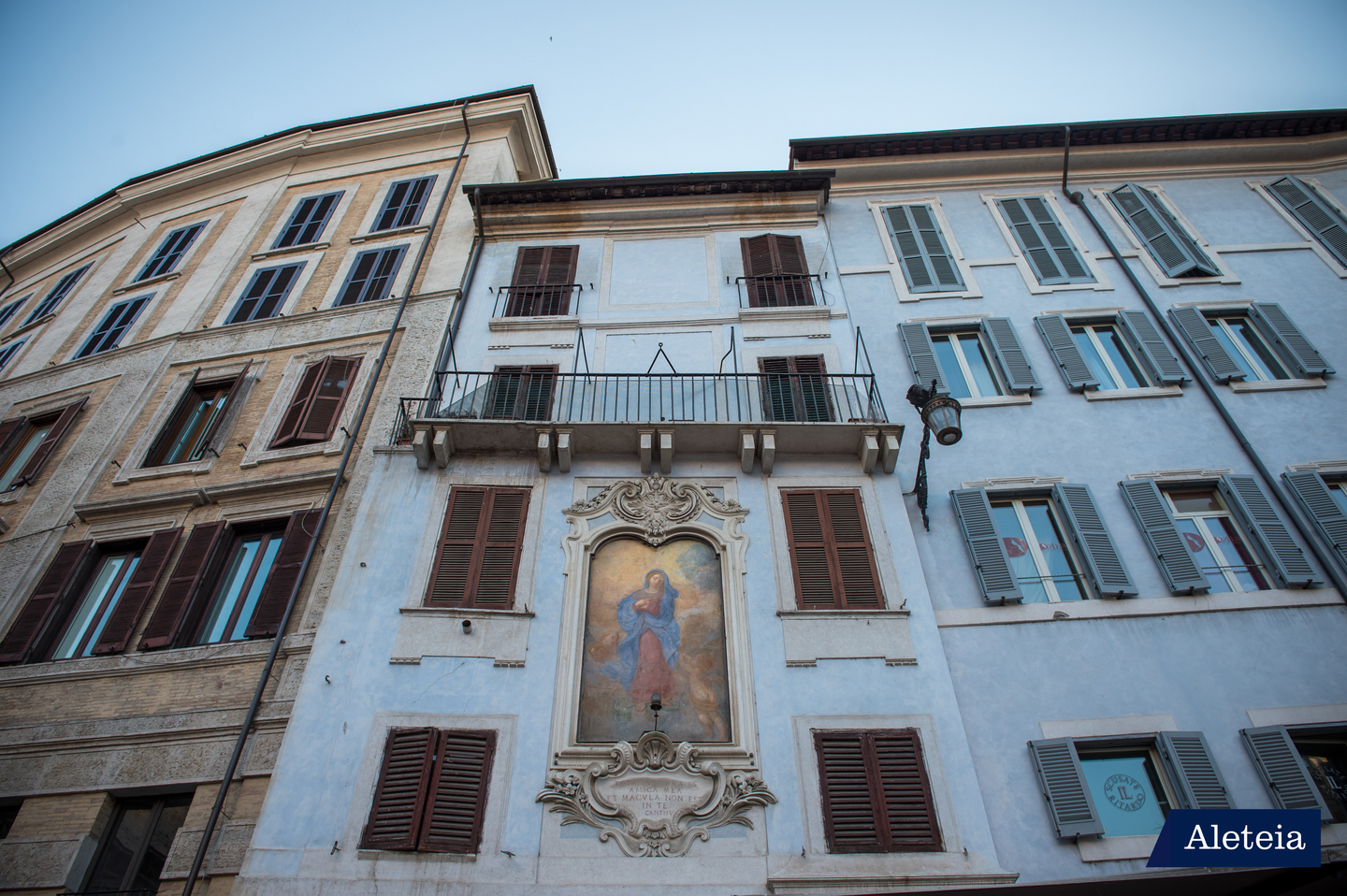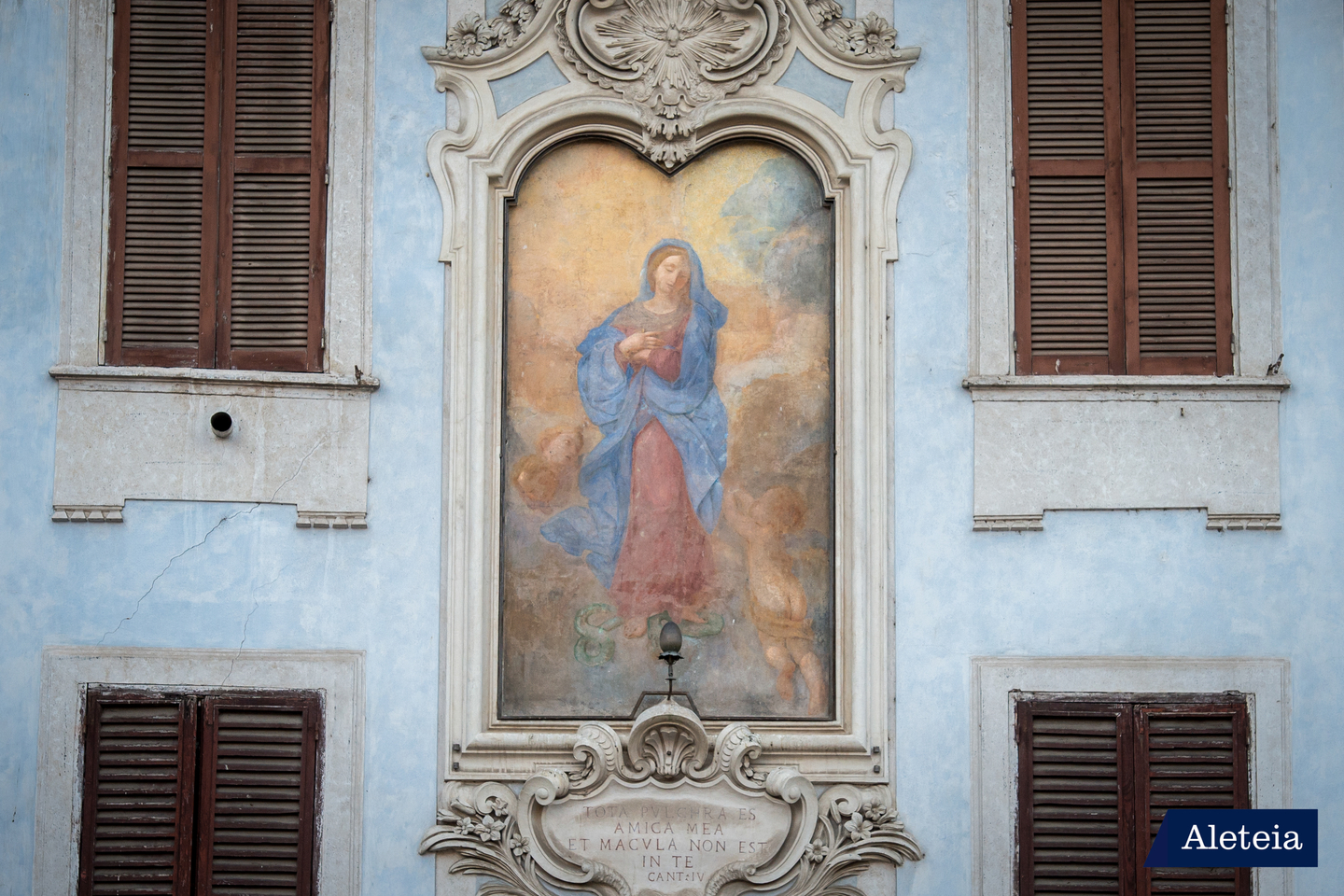Today our May tour of Rome’s Madonnelle brings us to Piazza della Rotonda (by the Pantheon).
Lenten Campaign 2025
This content is free of charge, as are all our articles.
Support us with a donation that is tax-deductible and enable us to continue to reach millions of readers.
We continue with our daily tour this month through a particular artistic expression of Marian devotion: Rome’s “Madonnelle” (“little Madonnas”). These are images of Mary—some of them miraculous—scattered throughout the streets and alleyways of the city. They are the object of much popular devotion. Follow the series here: Little Madonnas of Rome
Devotion to the Immaculate Conception of the Blessed Virgin Mary was widespread in Rome long before 1854, when Pope Pius IX proclaimed the Marian dogma. One proof of this devotion is a magnificent fresco that overlooks Piazza della Rotonda (by the Pantheon).

This 18th-century “little Madonna” is one of the largest in Rome. The fresco and frame together occupy the two-story space of the building where it is located. Iconographic studies, and an inscription at the base of the image (by Vasi) dated 1775, indicate that the fresco was painted in the middle of the 18th century.

The subject of the fresco is Mary Immaculate. Painted according to traditional iconography, it depicts the Blessed Virgin clothed in a blue mantle, hands crossed over her, and a globe, crescent moon and serpent under her feet. The 18th-century stucco frame is very elegant and is decorated at the top with a heavenly dove. At the base of the fresco there is an inscription, from the Song of Songs, written on a scroll decorated with lilies: Tota pulchra es, amica mea, et macula non est in te, that is, “Thou art all fair, My love, and there is no stain in thee.”
~
Follow the series here: Little Madonnas of Rome
See more articles like this at Aleteia’s Art & Travel section.








